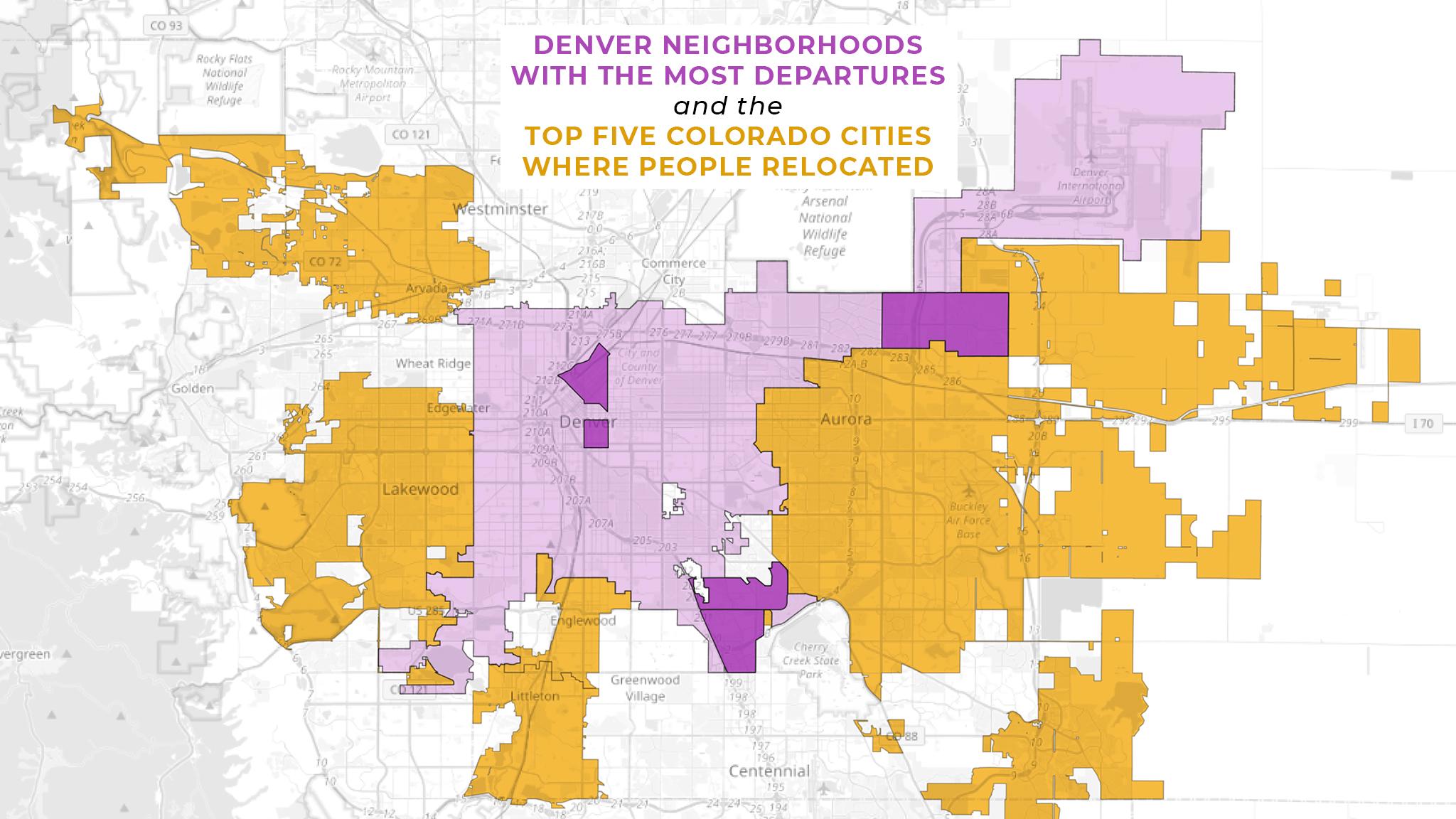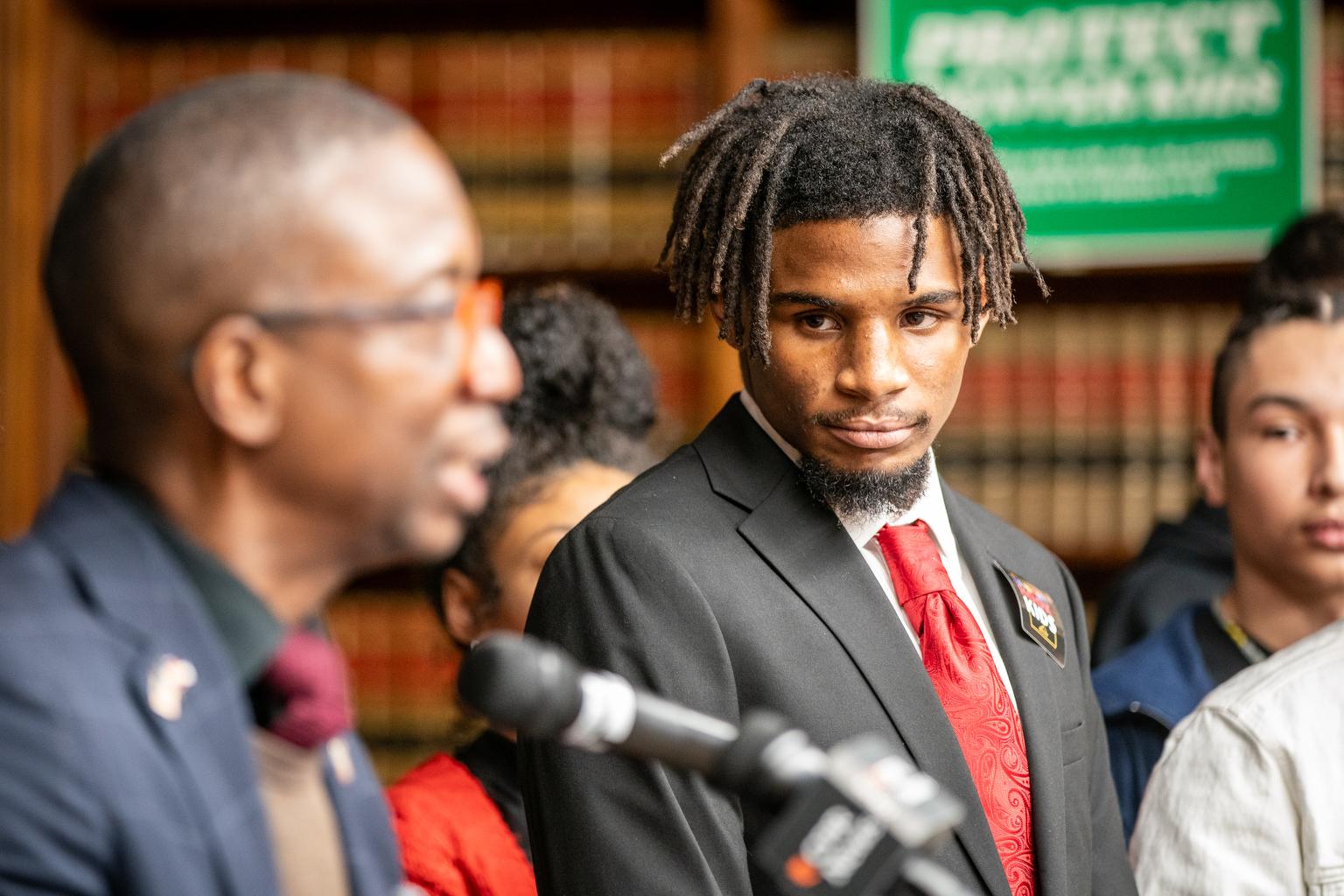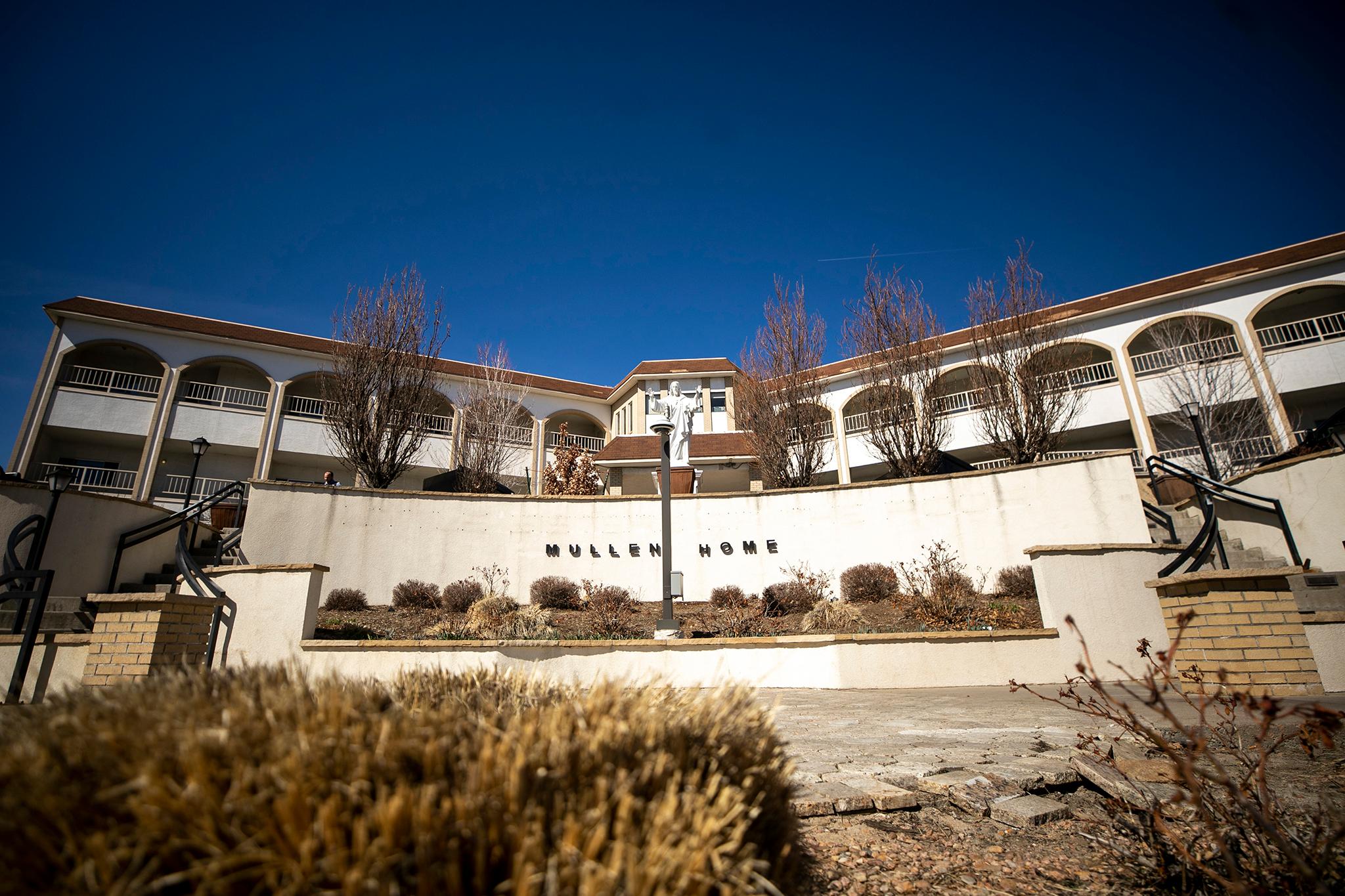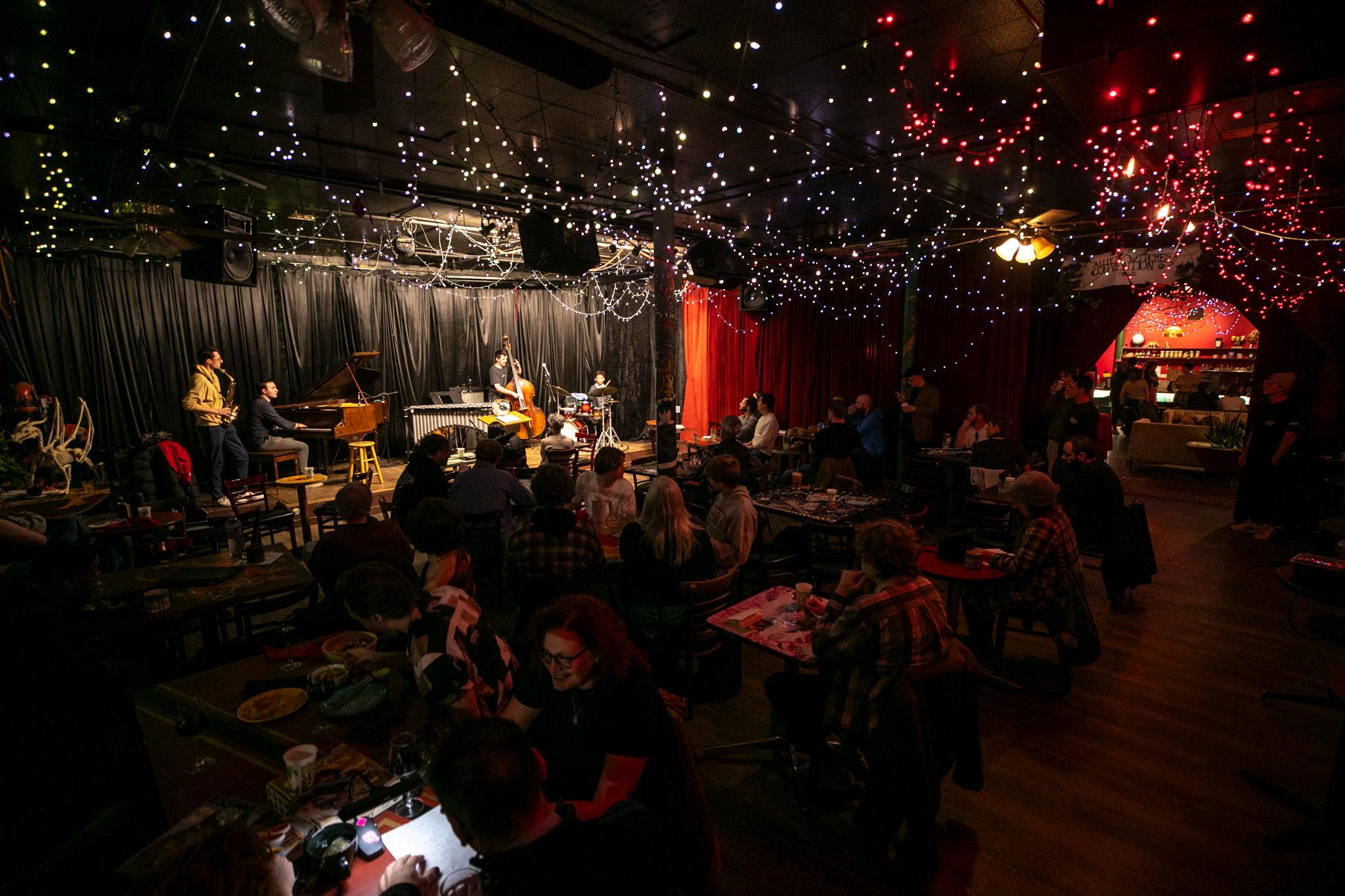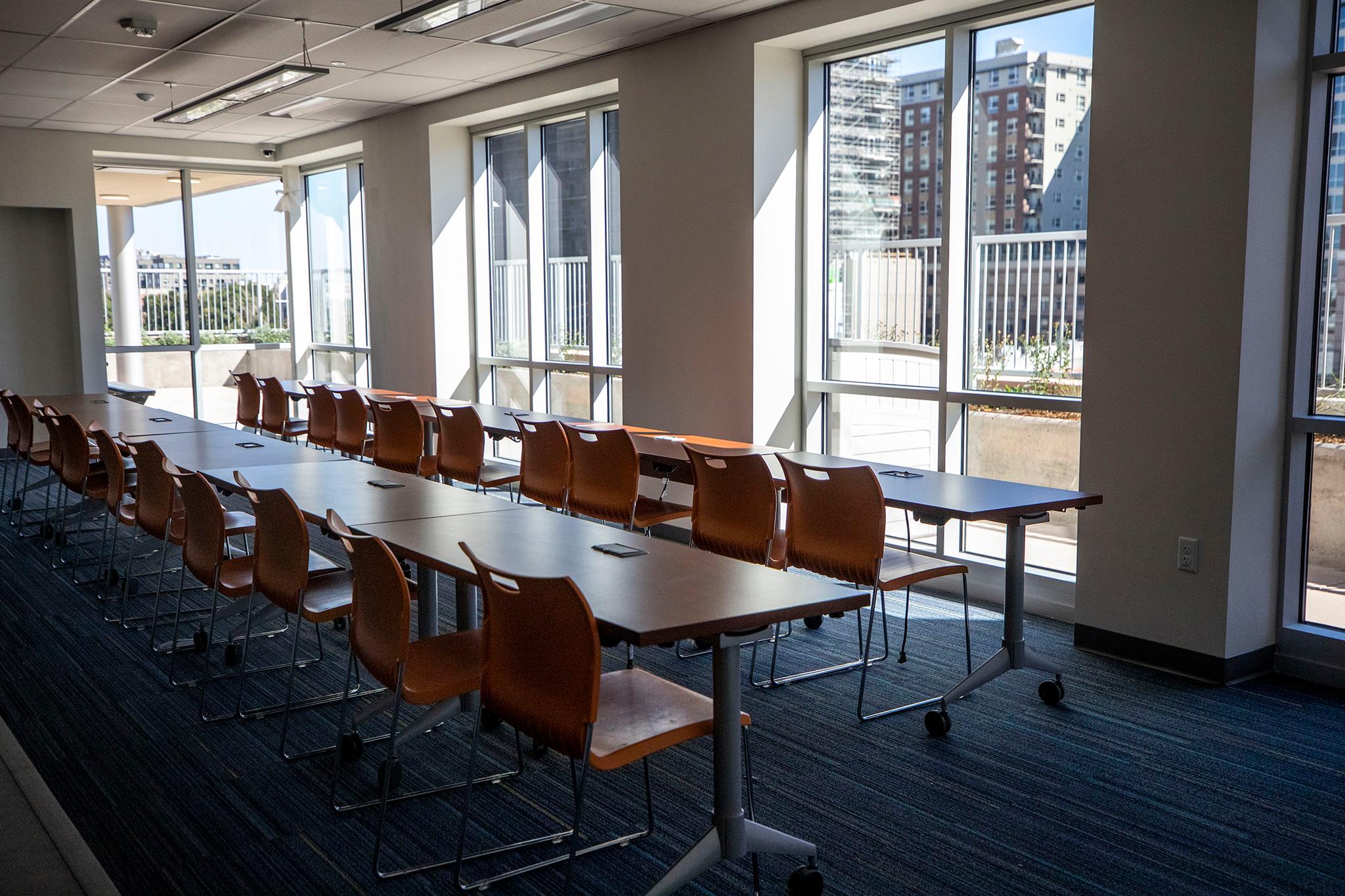At his final State of the City address last month, Mayor Michael Hancock described to Denverites a city recovering from a pandemic recession, one moving towards a just future when residents are not displaced by an unaffordable market and can live without worrying about safety.
That he touched on those themes is no accident - in interviewing more than a hundred Denverites earlier this year, we heard more concerns about affordability and crime than any other issues.
Plenty of people are thinking about leaving the city, and of course many have already gone, thanks to concerns about safety or impractical finances.
In a recent newsletter, we asked readers to tell us the state of their city, their personal experience of Denver, and we heard these two themes over and over.
"I feel like we're falling behind with no political will to catch up," Lauren Thurman wrote. "Constantly furious about the city's treatment of the unhoused and the berserker pace of gentrification (even though my family is a beneficiary of it). I want our city to be a place for people, not just the rich and their SUVs."
Though she and her husband both work and have zero kids to feed, she said they worry they can't afford to buy in Denver. The couple is currently renting her parents' home in Park Hill - their next move may be out Denver, if not out of Colorado entirely.
"Housing is out of control, top to bottom," Tim Lopez of Baker wrote. "DPD needs both oversight and support. The City of Denver is in flux, but not in a positive way. The City of Denver has lost its foundation and needs to find its roots."
"I am in my last few months living in Denver or the Denver metro area. The housing prices, the violence all over but especially in the few affordable neighborhoods, the lack of courtesy in all aspects of life, especially traffic, have driven me to start building a place in the mountains," Barbara, an East Colfax resident, told us. "It feels strange to be leaving after being such an enthusiastic and involved Denverite for so many years and having such deep roots in Denver. I am both excited and sad to leave."
And from Alana Watkins, who also lives in Park Hill, we heard: "I think Denver is a wonderful city and has made great strides in the last 20 years. There are definitely issues with affordability, homelessness, infrastructure, increased crime, but those are not issues unique to Denver and I think as a community we are all invested in creating positive change to address these issues."
We received 90 responses to the survey last month. Almost 60 percent of people who answered said crime or affordability were their number-one issues. A third of people listed transportation or the environment as their top issues. These results, of course, might say more about who reads Denverite than the city at large, so we dug deeper to learn more.
We looked at a decade of voter data to see where people are moving and cold-called some of those who have left. These themes showed up in that reporting, too.
Between 2020 and 2021, the U.S. Census Bureau estimated Denver's population dipped for the first time in at least ten years. That is probably related to a wave of remote workers who arrived during the pandemic and then left after things moved toward normalcy. Still, a lot of Denverites pulled up stakes in the last few years.
We crunched statewide voter rolls from May 2013 to January 2022 to see where people are going. The records are limited in that they only track people who vote, so they leave out non-citizens and people who haven't registered, but they do allow us to see trends among renters and owners alike.
One other caveat: we can only see where people move within Colorado, though a Census estimate of migration out of Denver County between 2015 and 2019 did suggest almost 70 percent of people who left the city stayed in Colorado.
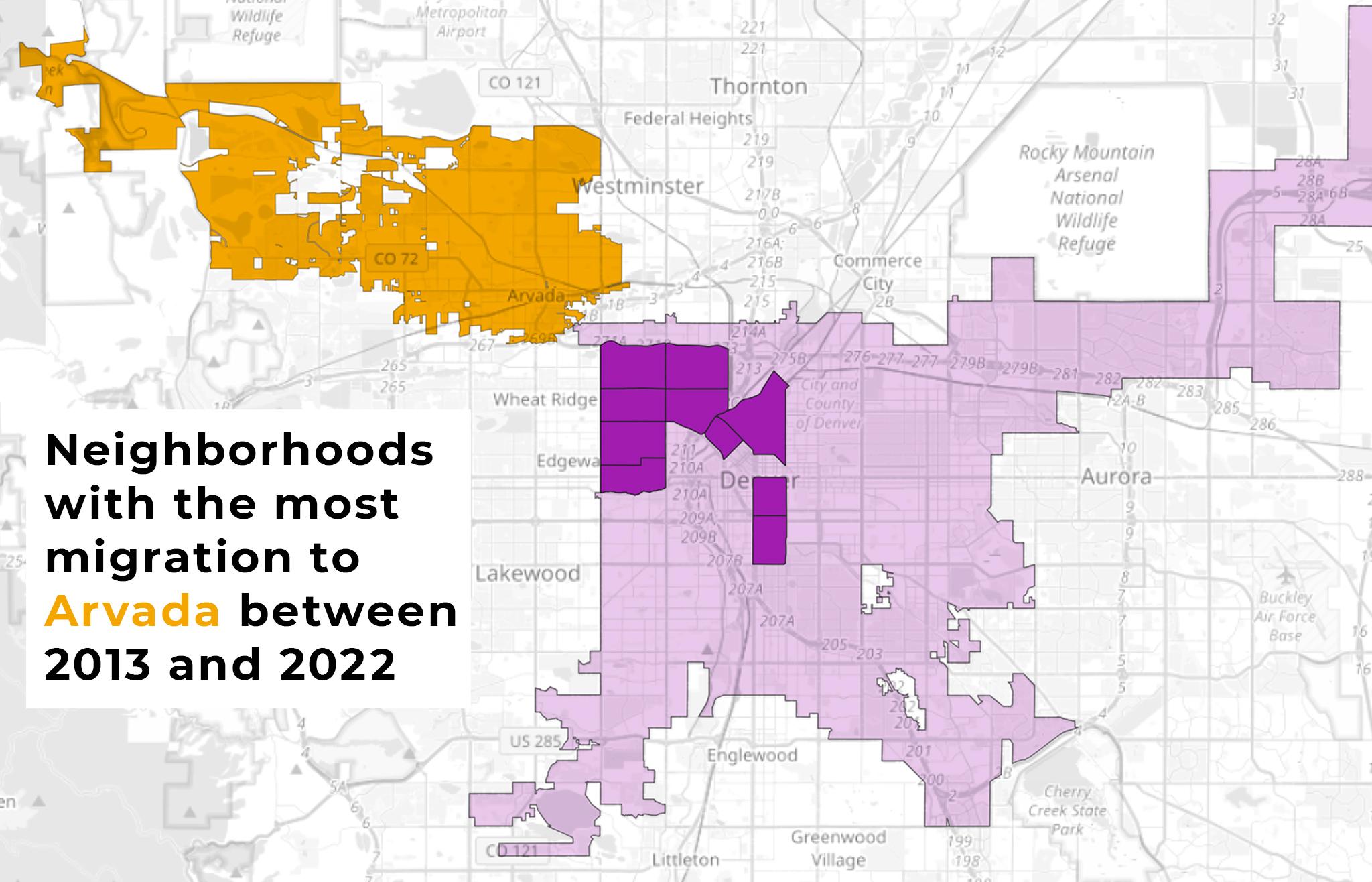
We identified 171,000 people whose last move between 2013 and 2022 took them to another Colorado city. It's about a quarter of our current total population.
Former Denverites were overwhelmingly likely to stay close to the city, and just jump the nearest border to another town. Of all the movers in our dataset, about half relocated to the 13 cities that directly border Denver. Most people settled in Aurora, Lakewood, Littleton and Arvada. Denver neighborhoods Green Valley Ranch, Five Points, Hampden, Hampden South and Capitol Hill saw the most departures.
People who lived in west Denver neighborhoods mostly ended up in Lakewood or Arvada, a little further west. People from east Denver neighborhoods jumped the eastern border to Aurora. Many people who ended up in Englewood and Littleton previously lived in south Denver.
People were also likely to move into Denver from Aurora, Lakewood, Littleton and Arvada, though fewer came from those cities than left for them. About 131,000 people's last moves were from other Colorado cities into Denver.
A related tidbit: about 3,000 people moved from Denver to Boulder in our period of study, versus 9,000 who went the opposite direction.
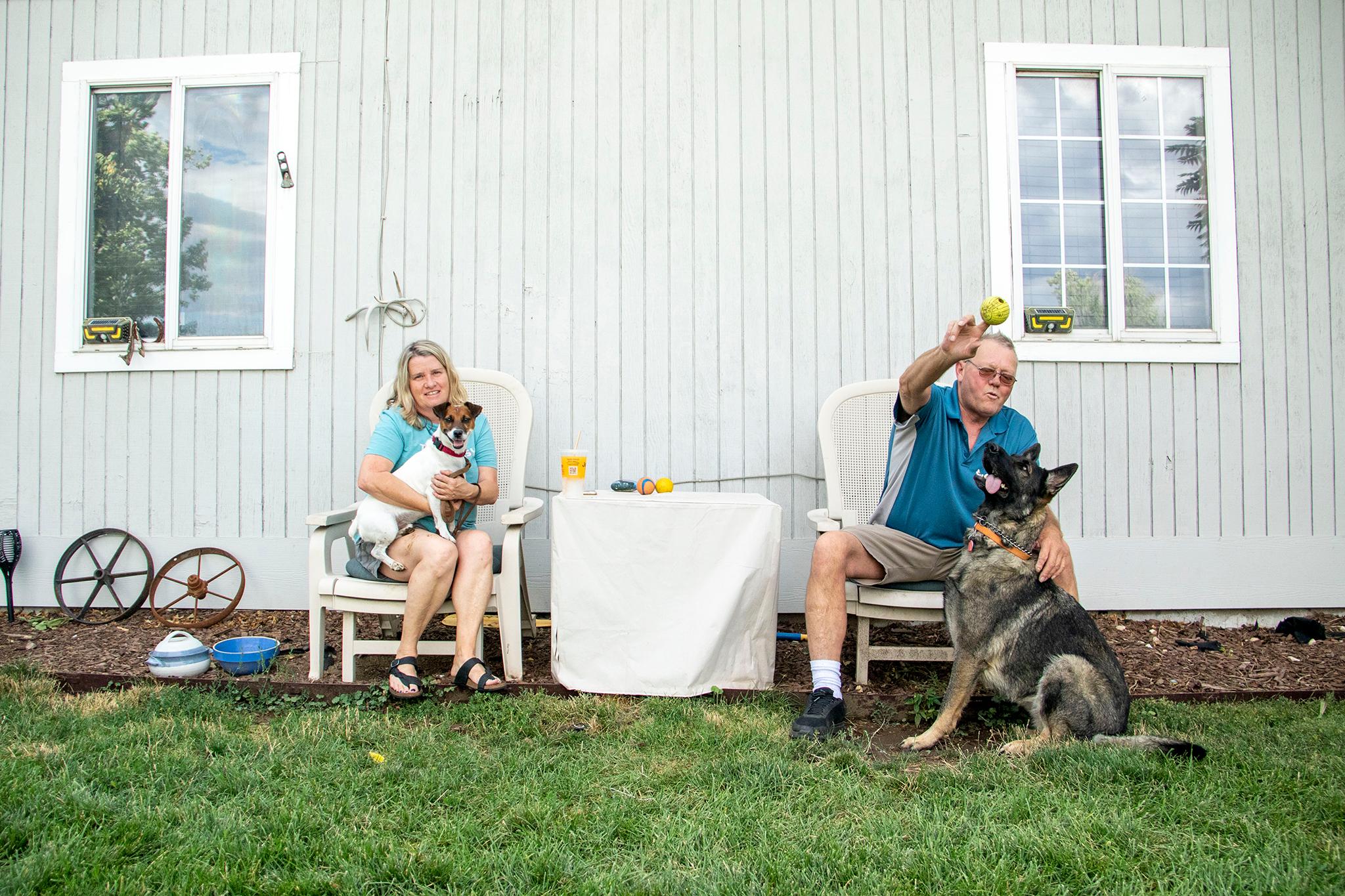
A lot of the people we called said they were forced to move for some reason or another. In some cases, renters' landlords sold the properties where they lived. In others, families had kids and needed more space.
Teresa Holmes-Crites, for example, moved with her husband, Mike, and dogs, Jax and Guinness, from Elyria Swansea just over city limits to Commerce City. Her brother-in-law, who owned the home where her family lived, died recently and his family decided to sell the house. While she wanted to stay in Denver, Holmes-Crites said she and Mike couldn't find anything in their budget.
"We're happy here, but I wanted to be in Denver," she told us. "The stuff that was available at the time was way over-priced."
She said a bunch of their former neighbors also moved into Commerce City. Our data show at least 77 people made that move; Commerce City was the third-most popular destination from Elyria Swansea, behind Aurora and Thornton.
A Kansas City Federal Reserve study found Denver had one of the highest rates of in- and out-migration from U.S. metros in 2017 (see page 11 of their report). Jason Brown, one of the authors of the paper, said they only measured movement between metro areas, not within them, but told us Denver has probably seen high levels of transition for the last decade. Generally, he said medium-sized cities see movement because they're attractive to people from more expensive cities, who want cheaper rent, and still accessible to people upsizing from smaller cities. The churn is an indication of Denver's quick and long-lasting growth.
At least 33,000 people relocated to Aurora, many from Green Valley Ranch. Affordability and safety were reasons why.
Seth Peterson also said it wasn't viable to move somewhere else in Denver. His family moved from a rental apartment to a rental house about a half hour south of his old neighborhood.
"We were just looking for something we could afford," he said. "The city really didn't have anything to do with it."
All five people we spoke to who moved from GVR to Aurora said rent and home prices influenced their relocations. Crime and safety were on the minds of four of those five.
Sunday Anyogu told us the home arson that killed five people in his old neighborhood in 2020 has stuck with him.
"That was horrible. That was horrible," he told us. "One reason that actually led me to leave Denver is that Green Valley Ranch is getting a high crime rate lately."
He moved about five minutes away, and said he's happy where he landed.
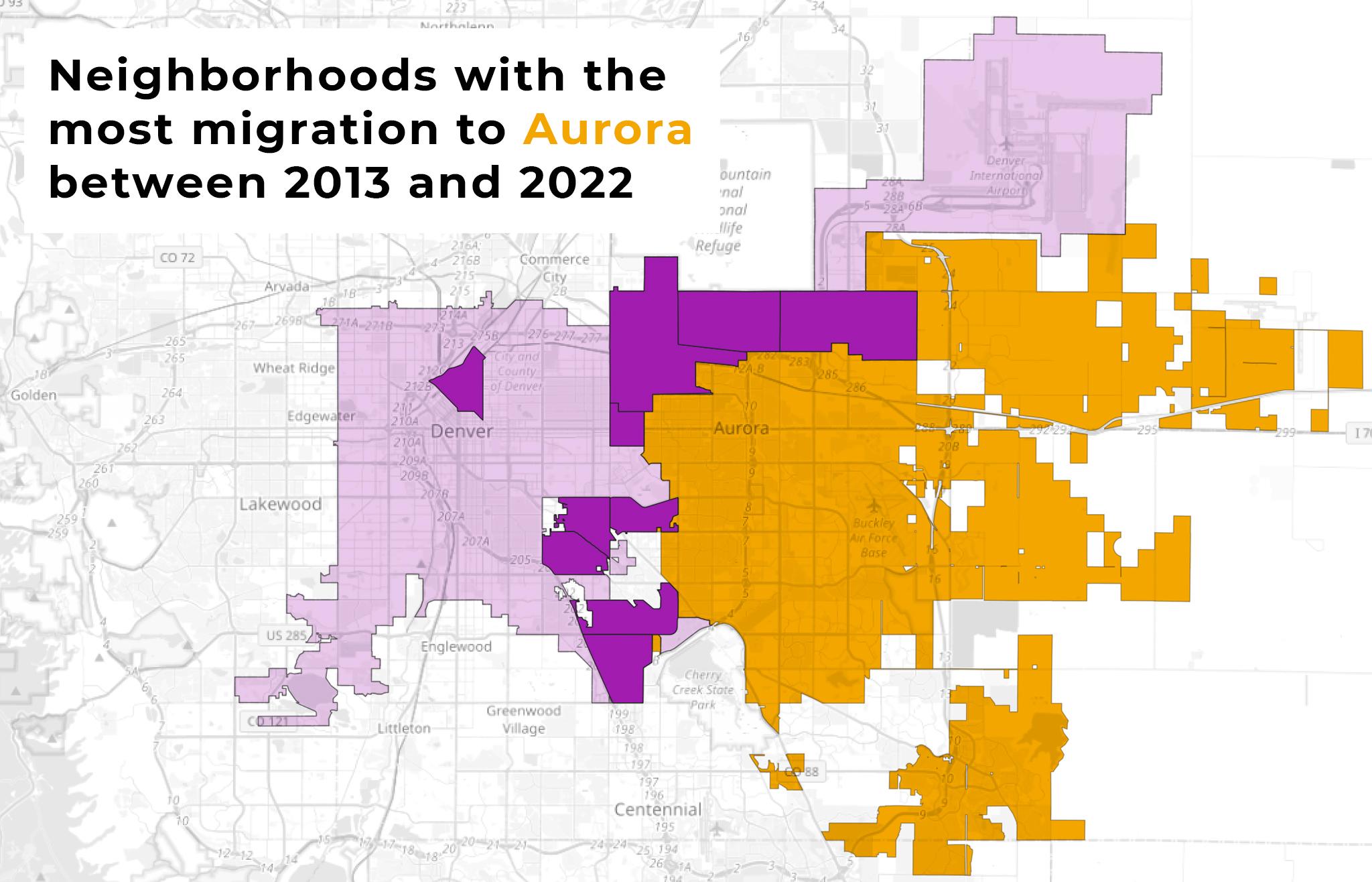
Rokia Traore told us her family moved to GVR in 2012 because it was the only neighborhood in Denver where they could afford to buy. Over time, she began to feel the area wasn't safe for her son, especially when he entered high school.
"Green Valley right now is just not a safe place to be," she said. "We needed more space, and we needed a better school for my son."
Alisha Page shared similar concerns.
"You hear random gunshots. You hear about random crime that doesn't always make it on the news. And because my son was younger and Black, it terrified me," she told us.
On one hand, she worried about peer pressure and gang violence. On the other, she feared how Denver Police might interact with her kid.
It was "pick your poison," in Denver she said. "Aurora has a lot of little pockets where you don't have too much concern."
About 25,000 people's last move between 2013 and 2022 went the opposite direction, from Aurora to Denver.
A quick note on crime in Denver:
After the pandemic took hold of Denver, rates of both violent and property crimes did rise here.
Reports of property crimes, like burglaries and auto thefts, hovered below 4,000 incidents per 100,000 people between 2017 and 2019, according to Denver Police data. That number rose in 2020 and again, to about 6,000, in 2021, a 50 percent increase from pre-pandemic levels.
Reports of violent crimes rose about 20 percent in that time.
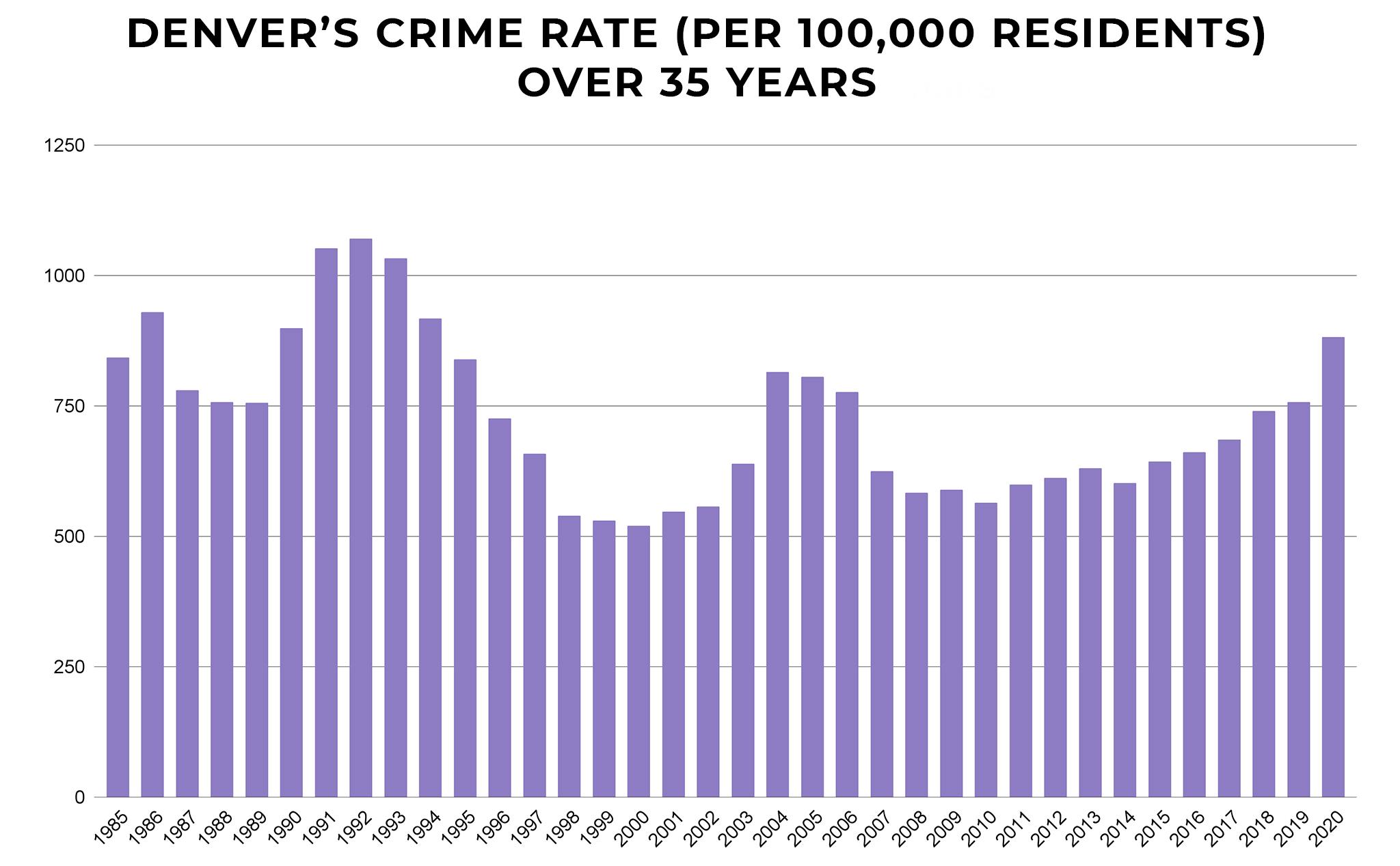
Crime Data Source: Federal Bureau of Investigation; Population Data Source: Texas A&M University Real Estate Research Center
Back in 2020, community leaders who work to curb violence in northeast neighborhoods like Montbello and Green Valley Ranch told us isolation and economic despair brought on by lockdowns were fueling trouble in their neck of the woods.
Crime rates also rose across Colorado, the U.S as a whole and in foreign cities. FBI data suggest current Denver's crime recent rates aren't as high as they were in the 1990s.
We're also paying more attention, which can distort how we view what's actually happening -- a recent analysis on local news in New York City found stories on crime skyrocketed this year though incidents didn't rise.
More than 16,000 people moved to Lakewood, many from East Colfax. The top-line reasons why they left were similar to what we heard on the east side.
Home prices landed Wanda Padilla across Denver's western border. She was living in an old farmhouse near Sloan's Lake that was showing its age. When she decided to find a new place in 2020, Lakewood had offerings she could afford. She's renting out rooms to keep up with the mortgage.
"We looked at several homes, and this was just a perfect house," she told us, "and I got it for a good price."
About 12,000 people relocated the other way, from Lakewood to Denver, between 2013 and 2022.
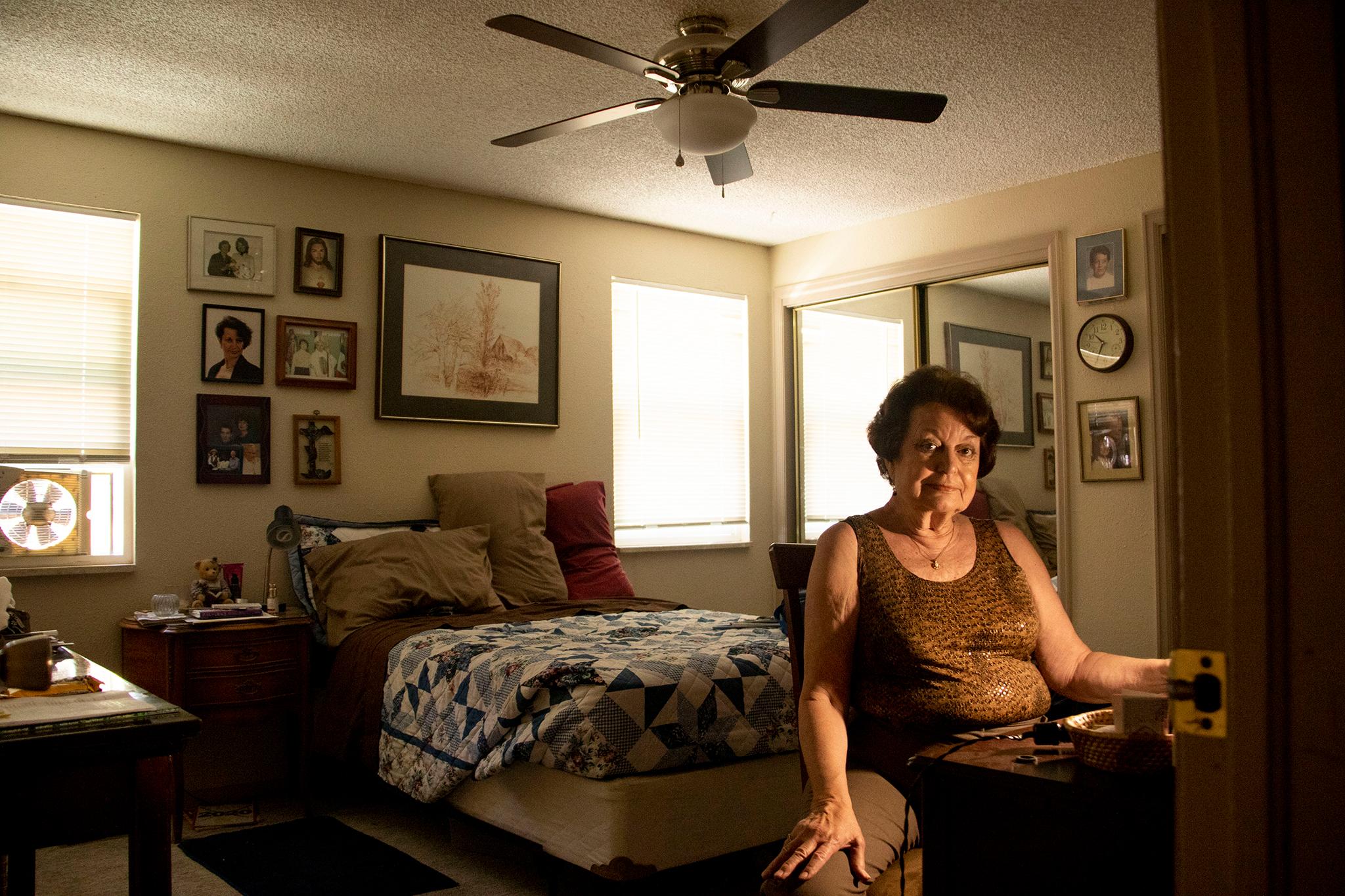
It was a similar story for Brendan Sullivan, who "transplanted" to Denver about 12 years ago but found his priorities shifting when his wife got pregnant.
"We tried finding a place in Denver, but just the market in 2020 - we pretty much got priced out. So we opened up our search," he said. "I never thought I would have lived in Lakewood, but here we are now."
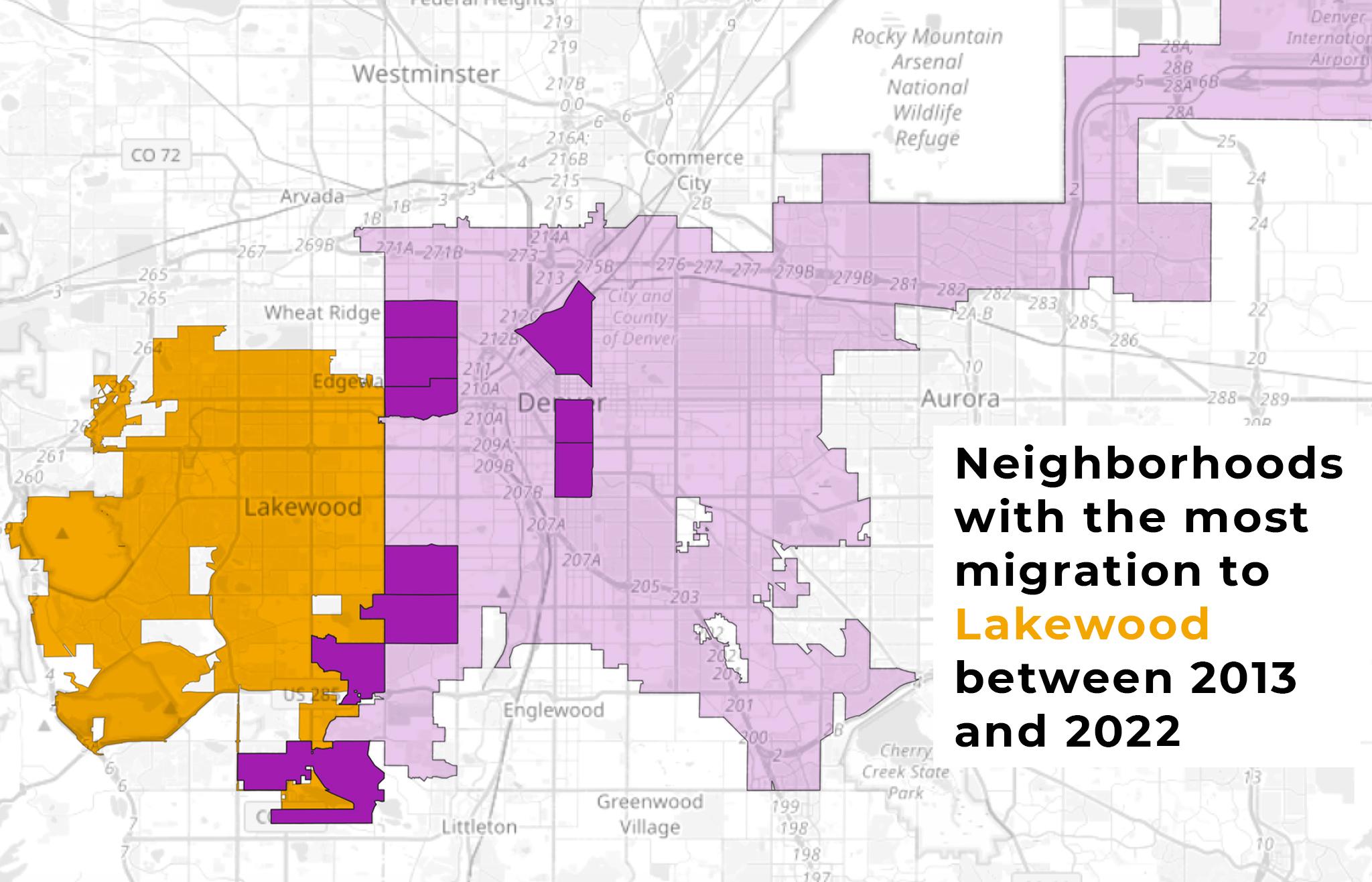
Safety concerns also led him to a place outside of city limits. While Sullivan said he never exactly felt unsafe in Denver, his newborn changed the way he perceived things that he once wouldn't flinch at.
"I like being able to just walk outside with our little one now, and not think twice about needles or stuff like that," he said. "Some of the neighborhoods we were in before, you have to be more aware of your surroundings."
Crime worries generally sounded different on the west side, compared to people we spoke to in Green Valley Ranch. While people in GVR thought about cops and guns, East Colfax residents were more concerned about theft, visible drug use and homelessness.
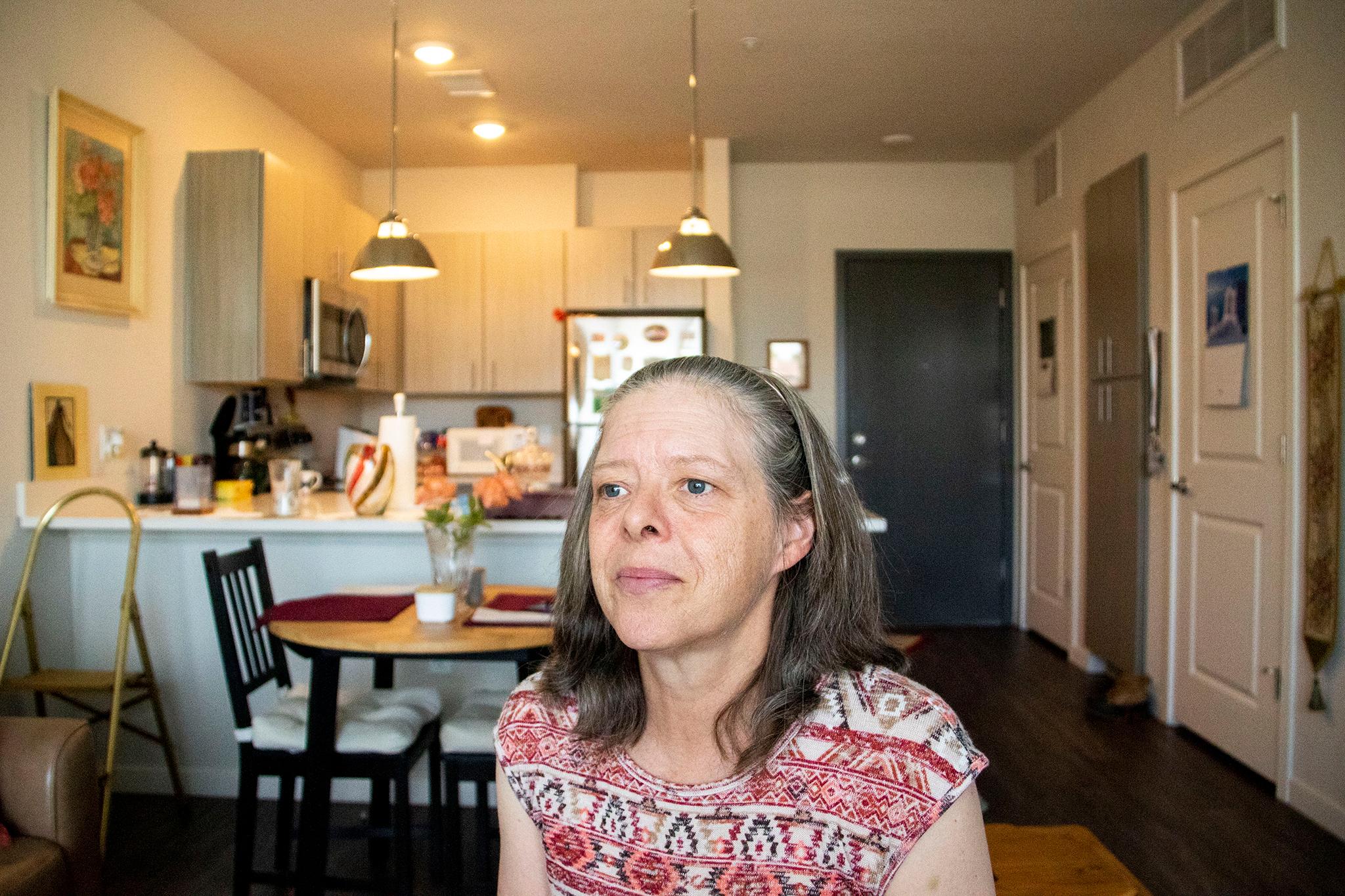
This was true for Susan Volle, who has a more intimate understanding of these issues than most. Volle spent years without a stable home, and was a client with the Colorado Coalition for the Homeless as she sought a roof over her head. Then, two years ago, her mother died and left a nest egg she never knew about. The money helped her get an apartment of her own in Lakewood.
"I was homeless. I still have a heart for the homeless, and I do what I can for the Coalition. I try to help where I can in Denver. I still have lots of friends there. But at the end of the day, I needed a secure area," she told us. "The crime is just ridiculous. It's gotten even worse since I left."

